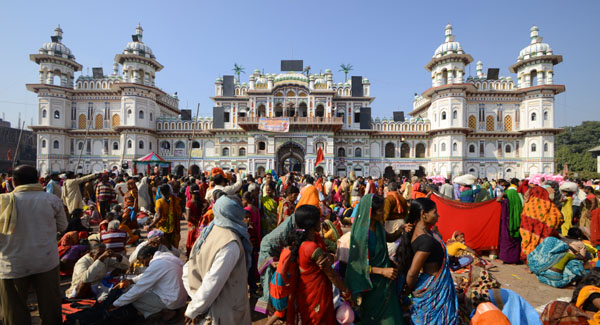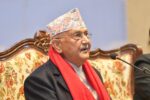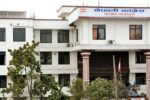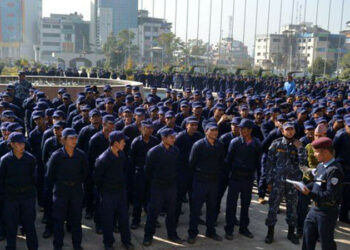KATHMANDU: The Bivaha Panchami festival is being celebrated throughout the country today by worshipping and paying homage to Shree Ramchandra and Sita.
This religious and cultural festival is observed on the fifth day of Shukla paksha (the waxing phase of the moon) in Margashirsha month according to the Hindu calendar. It commemorates the wedding of Hindu god Rama and goddess Sita.
According to mythology, it was on this day that lord Rama and goddess Sita were married during the Treta yuga.
Bivaha Panchami is celebrated with gaiety and religious fervor especially in the historic city of Janakpur today, with thousands of devotees offering prayers at the famous Janaki temple since early morning. Lakhs of devotees including Sadhus and Saints also participate in the celebrations.
Bivah Panchami is celebrated to mark the marriage of Lord Ram and Sita as all the people of the Hindu world know the story of the marriage of the Rama and the princess Sita, as told in the epic Ramayana.
As per the Hindu mythology, King Janak of Mithila, Sita’s father, proposed a test of strength for the suitors of his daughter: to string the great bow of Lord Shiva. Warriors, kins and chieftains came from afar, but no man could even lift the bow. Rama, a prince from ancient Ayodhya lifted the bow with ease and when he tried to string it, the bow shattered into pieces.
Rama and Sita were married in Janakpur, the capital of ancient Mithila kingdom, and their marriage is celebrated to this day. Each year, idols of Rama and Sita are brought out in procession and their Hindu wedding ceremony is re-enacted during a weeklong religious fair. Bivaha Panchami reflects the devotion of Hindus to Rama, perhaps the most popular among the incarnations of lord Vishnu, and to Sita, the model of the ideal Hindu woman.
The marriage ceremony of Rama and Sita is enacted at the Rangabhoomi ground in Janakpurdham today. It is believed that all the 560 million deities are present to witness the marriage ceremony.
Various rituals like the matkor, tilakotsav, swoyambara and the bivaha are observed as part of the festival. A statue of lord Rama is brought in a decorated colourful palanquin from the Ram Temple to the Rangabhoomi, accompanied by a procession and musical band.
Similarly, a statue of goddess Sita is brought to the Rangabhoomi in a lavishly decorated palanquin accompanied by a procession where all the rituals associated with a Hindu marriage are enacted.
Thousands of pilgrims from India and other parts of the world come to witness this grand celebration. The day holds immense significance in Janakpur as it was believed that the ceremony was held here itself.
—









Comment